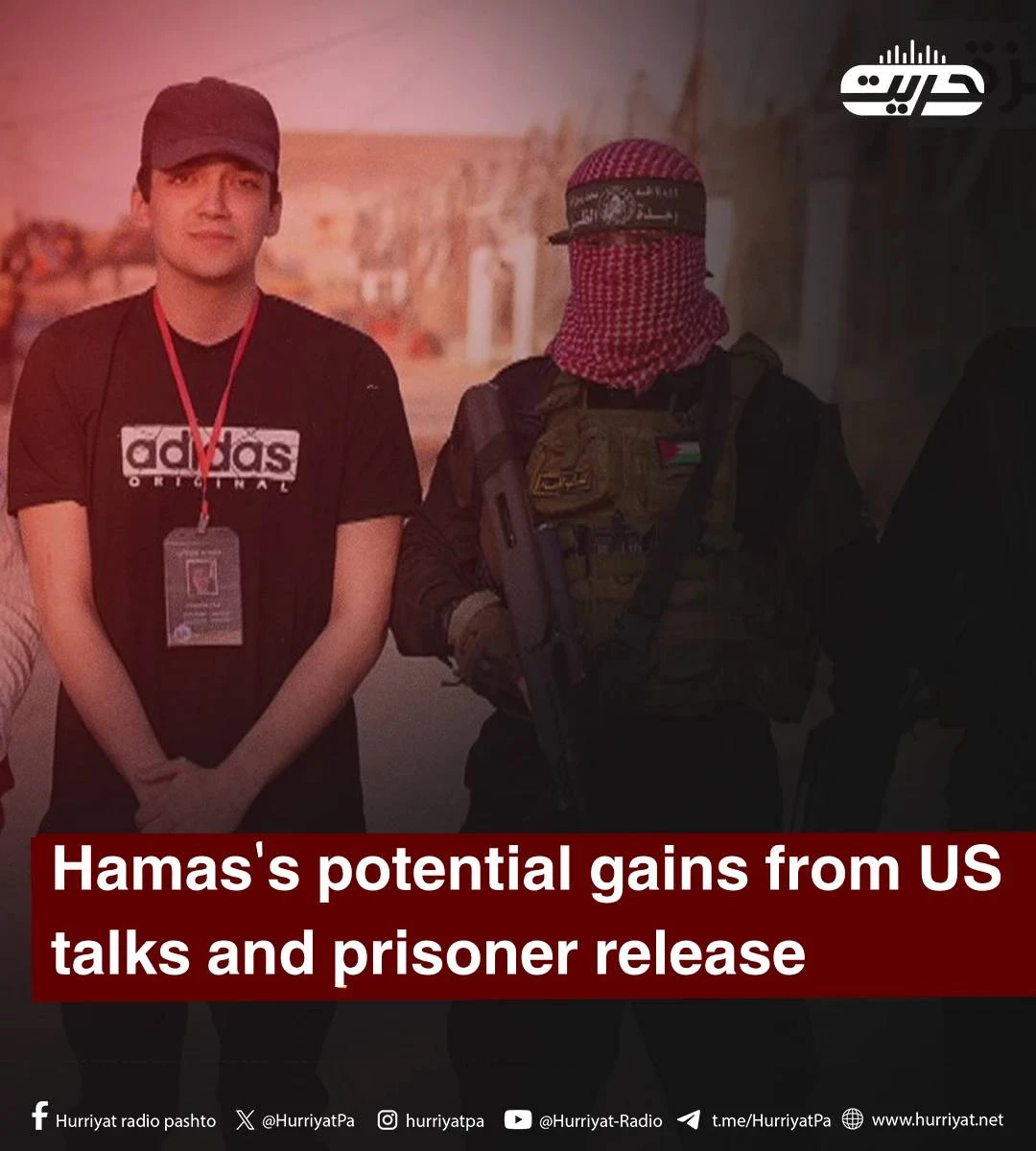Hamas's potential gains from US talks and prisoner release
56 days after the commencement of Israel's renewed offensive on Gaza, Kata'ib Eze-ul-Din al-Qassam declared its intent to release American-Israeli detainee Aidan Alexander as per an agreement brokered between Hamas and the US administration.
Subsequently, news outlets reported that Hamas had transferred the prisoner to the Red Cross, with Israel later confirming the handover of Alexander to their custody.
Concurrently with Alexander's liberation, US officials highlighted the potential of Kata'ib al-Qassam's release in Khan Yunis to set the stage for discussions that could lead to a prisoner swap and a ceasefire, despite Netanyahu's government's persistence in continuing the conflict.
Following the prisoner's release, Hamas expressed its call for the administration of US President Donald Trump to actively engage in efforts to bring the war to an end. The Palestinian Islamic Resistance Movement further stated, "We are prepared for negotiations that will result in an agreement ending the occupation, lifting the siege, exchanging prisoners, and initiating reconstruction."
Approving Aid Deliveries to Gaza
Reports suggest that Hamas had stipulated a single condition for the release of the Israeli-American captive: that Israel permits aid to enter Gaza. While the Israeli government had previously stated that they would solely open the border crossings for the prisoner's release, the Qatari Prime Minister recently informed The Washington Post that discussions had taken place with Israel and Washington regarding the potential provision of aid to Gaza. Face-to-face discussions between Hamas and Washington were also conducted in the Qatari capital of Doha, centering on a ceasefire, the opening of crossings, the delivery of aid to Gaza, and the provision of shelter for the people of Gaza, activities still in their preliminary phases.
3 Key concessions secured by Hamas in the deal
According to political analysts, the direct negotiations between the US and Hamas caught Israel off guard. Prior instances of the US engaging in similar agreements with Yemen's Houthis suggest that American priorities take precedence over Israeli interests. In both cases, the US has primarily safeguarded its own concerns, disregarding Israel's, a move that has irked Israeli officials, notably Netanyahu. The head of the opposition within the Israeli government labeled it a significant humiliation for Netanyahu, while Israeli experts viewed it as a setback for his administration.
In an article, Muhannad Mustafa, a professor of political science and history affiliated with the Center for Social Research in Haifa, outlined three key accomplishments for Hamas resulting from this agreement: it disrupted the political and military landscape in Gaza, imposed a political defeat on Israel as underscored by opposition leader Yair Labid, and dismantled Israel's strategy of pressuring Hamas by subjecting the population to deprivation.
Future of US-Hamas talks?
Analysts propose that the ongoing discussions between the US and Hamas regarding the Gaza conflict might mark the initial phase of a dialogue that could persist in the future. However, the stance of the Israeli government led by Netanyahu towards these negotiations remains uncertain. Political analyst Akifa Eldar conveyed to Al Jazeera that while a definitive response is yet to emerge, indications point towards Israel grappling with a new political landscape that necessitates engagement with international initiatives rather than solely relying on independent actions.
Eldar perceives the accord as a substantial political and humanitarian triumph for Hamas, aligning with prevailing Israeli perceptions.
Netanyahu aims to diminish reliance on US support
Israeli media outlets, a day prior to Aidan Alexander's release, reported Netanyahu's desire to lessen his dependency on US assistance. According to the Israeli newspaper Maariv, Netanyahu conveyed this sentiment during a joint session of the Knesset’s Foreign Affairs and Defense Committees on Sunday evening.
While the newspaper did not specify the rationale behind this shift, analysts speculate that Netanyahu's stance may stem from disappointment in the decisions made by the US president, evident in his critical remarks regarding Aidan Alexander's release. Israel’s Channel 12 disclosed that the Israeli military had been directed to cease fire post-noon on Monday to facilitate Alexander's release, despite Netanyahu's prior declaration that the conflict would not pause for this purpose.
Netanyahu also maintained his position on escalating the hostilities in Gaza. However, following Alexander's release, his office announced preparations to dispatch a delegation to Qatar for forthcoming discussions, scheduled to depart for Doha the following day.
Who is Aidan Alexander?
He is an American citizen and a Zionist soldier, born in Tel Aviv in 2003. As a child, he relocated to the United States with his family and was brought up in New Jersey. In 2022, he made the decision to move back to Israel and enlisted in the army there. Stationed near Gaza, he was captured by Hamas fighters during the Al-Aqsa Storm on October 7, 2023, and has remained in captivity since then. Hamas released him today (Monday), with the Israeli military confirming his well-being.
Simultaneous with his release, hundreds of Israelis gathered in front of the US embassy in Tel Aviv, demanding the freedom of all detainees. The American authorities have reiterated their extensive efforts in this regard, while citing obstacles created by the Netanyahu administration.










